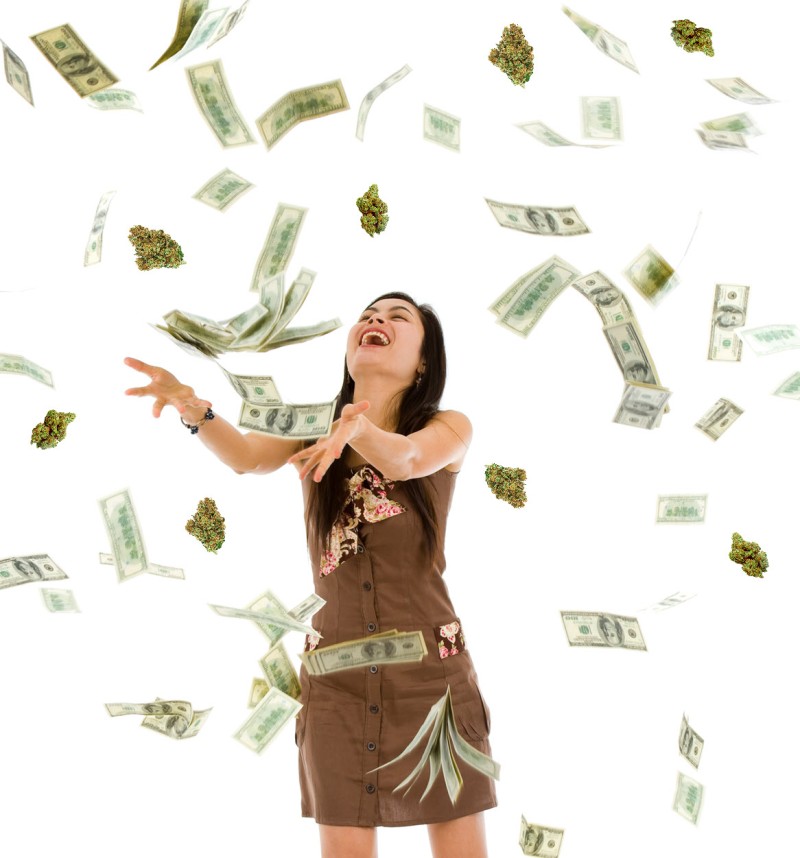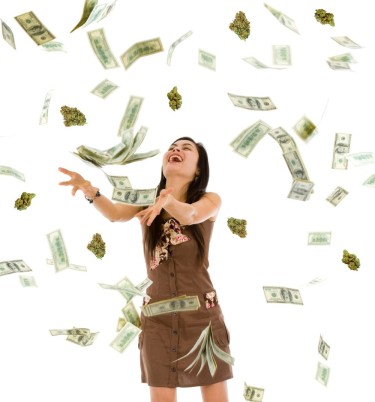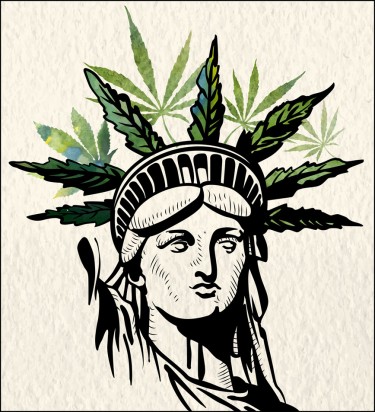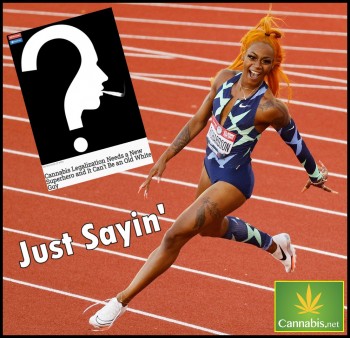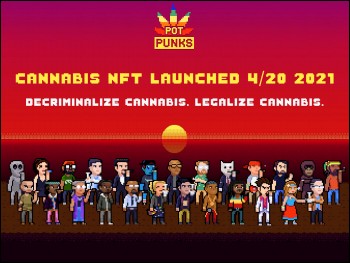According to the Buffalo News, the budget bill in New York has earmarked $16 million to tackle unlicensed cannabis dispensaries.in New York. Governor Kathy Hochul (D) signed the legislation, which raises fines for unlawful operators from $500 to a maximum of $7,500 for initial offences. The bill also increases monetary penalties to triple the taxes that could have been generated from the sales.
In addition, the bill grants the state the power to enforce store closures, prosecute unlicensed shops for tax fraud, pursue restraining orders, and permit landlords to evict illicit dispensaries. The phrasing in the bill is precise in distinguishing that these regulations will solely apply to unlawful cannabis shops and not to individual citizens.
Unlicensed cannabis dispensaries have been on the rise in cities across the state, particularly in New York City, as the government has been sluggish in granting licenses for adult-use retail. Initially, Governor Kathy Hochul (D) suggested imposing fines of up to $10,000 daily for illicit cannabis storefronts. However, the phrasing in the budget proposal would provide the state with a broader range of possibilities to shut down these businesses.
In February, a report commissioned by Acreage Holdings, a multistate cannabis operator, warned New York of the consequences of failing to grant licenses to cannabis businesses promptly. The report indicated a loss of approximately $2.6 billion in tax revenues over eight years. New York's budget is overdue by over a month.
Why is the Illegal Market Still Booming in New York City?
The first legal cannabis dispensaries in New York are currently operational, presenting both consumers and sellers with opportunities. However, concerns have emerged regarding how the legal market will contend with illicit sales.
Marijuana is the most widely used federally prohibited substance in the United States. New York, one of 21 states, along with the District of Columbia, has legalized its recreational consumption. It has been over a decade since Colorado and Washington became the first states to pass ballot initiatives legalizing cannabis.
Since then, subsequent state laws have attempted to reflect the increasing public acceptance of a substance viewed as less detrimental than nicotine and alcohol. There's also the recognition of the communities that the criminalization of cannabis has disproportionately impacted.
The state made social equity a primary focus of its strategy for a legal cannabis market, setting aside initial licenses for individuals and non-profit organizations that the enforcement of cannabis prohibition has adversely impacted. Services supporting those previously incarcerated were also eligible for the initial licensing.
So far, the initial dispensaries have opened throughout the city in recent months, and over 60 licenses have been granted across the state. However, many unlicensed, unlawful shops continue to litter the streets of all five boroughs, vending cannabis in places ranging from small bodegas to expansive operations that could be easily mistaken for authorized retailers.
Alyson Martin, the founder of Cannabis Wire, a platform that covers the cannabis industry in New York and beyond, stated that officials have conservatively estimated the existence of 1,400 unlicensed shops across the five boroughs. Still, she believes the actual figure is significantly higher.
According to Martin, the COVID-19 pandemic led to the closure of numerous stores, causing illicit shops to emerge. These illegal dispensaries capitalized on the cannabis industry in the largest city in the United States. These illicit vendors became convenient for consumers and offered less expensive cannabis.
Amanda Chicago Lewis, an independent investigative journalist who covers the cannabis industry, mentioned that consumers usually prefer illicit shops due to the cost. Why would anyone purchase an $80 eighth of weed at a legal dispensary when they can acquire the same amount for $25 from an illegal one? In a city as vast as New York, the closest legal dispensary could be situated more than an hour away, while an unlicensed store might be present in one's vicinity.
Risks That Come with Illegal Weed
According to Martin, while the price is cheap, illegal marijuana poses health hazards to consumers and can jeopardize the legal cannabis industry.
The sale of legal marijuana in New York requires it to be cultivated within the state, as per federal law, which prohibits the interstate trade of marijuana. However, illegal cannabis circumvents this system. The marijuana sold in New York is often cultivated in California, owing to the region's favourable growing conditions and established cultivators.
Cannabis cultivated illegally in California avoids the state's environmental regulations for legal marijuana and its labour laws. Furthermore, illegal cannabis evades testing requirements, leading to potentially misleading or inaccurate dosage labels.
A study was commissioned by the New York Medical Cannabis Industry Association, a trade group representing legal and licensed cannabis growers. It involved researchers who purchased 40 products from illicit markets in New York City. They then tested these products at a third-party lab to determine the levels of THC present. They also checked for harmful substances like pesticides, salmonella, e. Coli, and heavy metals. The study was conducted in 2022.
The study discovered that 40% of the products would have failed at least one of the tests given to legal cannabis products. The study found that many of these products did not have the THC levels advertised, and all of them would have failed the state's standards for the legal marketplace.
Additionally, marijuana sold outside of the legal marketplace violates New York state packaging laws, resulting in some products with images that are attractive to kids, mimicking cartoons or popular candies.
Conclusion
The growth of illicit dispensaries continues to be of great concern as New York's legal marijuana market develops. These unlicensed businesses may provide customers with reduced costs and easy access, but they also pose severe hazards to the general public's health and the integrity of the legal sector.
The recent budget bill in New York that earmarked $16 million to tackle unlicensed cannabis dispensaries is a promising step towards regulating the industry and protecting consumers. With the state's new powers to enforce store closures, prosecute tax fraud, and pursue restraining orders against illicit dispensaries, the hope is that the legal cannabis marketplace can finally thrive.

